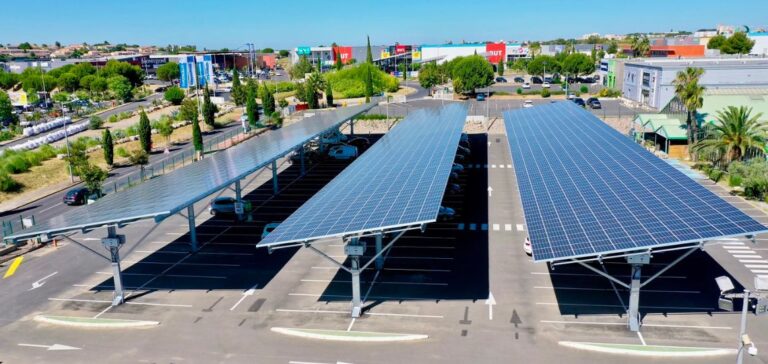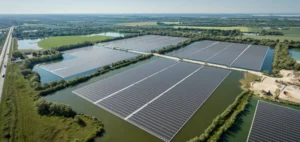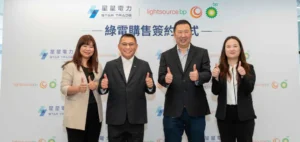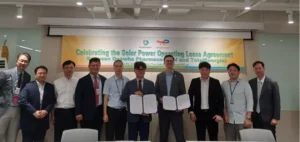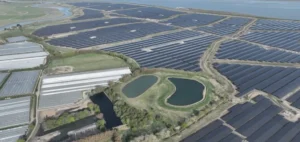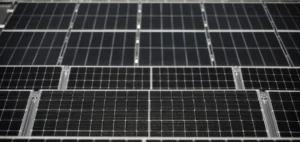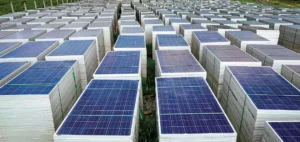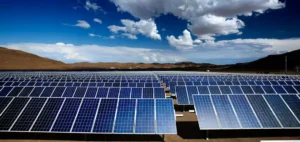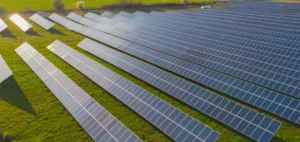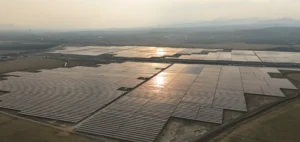Installing photovoltaic shading on half of France’s shopping mall parking lots could produce as much electricity as an EPR nuclear reactor, says Edouard Roblot, director of low-carbon buildings at Idex, a French company that provides energy solutions for industry, retail and hospitals.
QUESTION: How much do you estimate the surface area of shopping malls in France likely to receive shades producing solar electricity?
ANSWER: “Ademe has identified 843 industrial and urban wastelands that could be fitted with photovoltaic installations, and we estimate that within this total, there are between 90 and 150 million square meters of parking lots of more than 2,500 square meters that could be equipped with shading.
We are already equipping hospitals, such as the one in Evreux, certain factories such as Bledina in Brive-la-Gaillarde in Corrèze, or Evian in Haute-Savoie, and are beginning to equip shopping centers. On average, each piece of equipment costs 1 million euros per site and covers 30% of our customers’ daily energy needs.
We rent the parking areas through a lease with the distributors, to whom we then sell the solar electricity at a price below the market price. The subsidiaries of EDF and Engie, which are our main competitors, have the same business model as we do.
We arrive with investors, the installation costs nothing to the shopping centers, and allows them to make a profit from the first year”.
Q: How much power would that represent?
A: “Supermarket parking lots represent a huge reservoir of energy. If we equipped only half of these parking lots, it would be like producing 2 gigawatt hours per year of solar electricity, or as much as 1.2 EPR (nuclear) per year.
France is very late on the subject because we see such shades almost everywhere in Europe. It is important to think that this type of equipment can also encourage the development of electric vehicles, because underneath we can install terminals powered in part by solar energy, which would allow voluntary shopping centers to offer free recharging to their customers.
Q: Where do you source your solar panel materials? What are your plans for recycling solar panels at the end of their life?
A: “The contracts provide for end of life and recycling, each customer can choose to replace the panels or remove them. The panels are guaranteed for at least 25 years. The galvanized steel is French and we also have a French supplier of photovoltaic panels. There is already a recycling plant in Roussillon and a second one is being created.”

